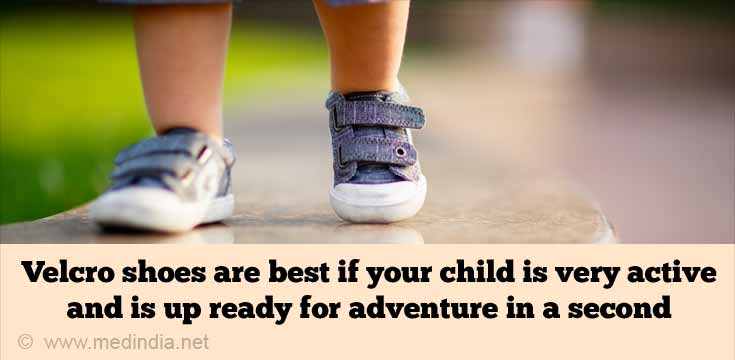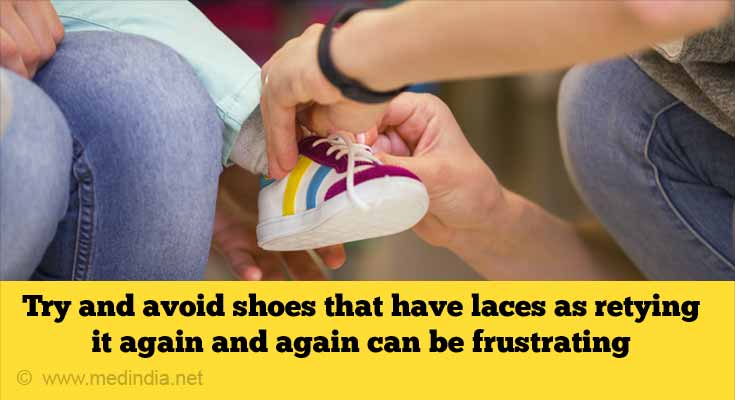About
You are naturally eager to buy those baby shoes even before your baby is on his or her feet. It’s just a matter of time before your tiny tots put their best foot forward. There is always a little preparation required, but nothing hairsplitting! Many parents decide to wait upon more time to pass by for their baby to strut in their first booties, while others just go for it at the earliest. Either way, sooner or later it would become necessary for your baby to sport the right shoes and get acquainted with the feel of an additional wear.
The market is flooded with adorable and cute shoes for babies, but it is important for parents to pick up shoes that fit your baby just right. Do not get carried away with the looks of these soles decorated in an eye-catching fashion in the shoe shelves of your favorite stores. You could follow some easy steps to avoid temptations and pick up what would be comfortable for your baby:
- Babies require the same amount of attention as adults while choosing the right shoe size. Hence, comfort and flexibility of the shoe becomes important and should be the main criteria for selection.
- Shoes for a baby should be of exact fit – if too loose your baby could fall or find walking absolutely difficult. If too tight your baby could develop blisters or shoe bites, which could result in irritation or pain in the feet which could turn sore too and get worse.

- Weather conditions should also be borne in mind. Sandals, slip-on or open-toed shoes for summer would be apt, helping your baby’s feet breathe.
- The shoe soles should be non-slippery and not necessarily thick as they would not be doing intensive walking.
- You should be able to insert your little finger to a certain extent once your baby sports the shoe to check the fit and at least half an inch gap between the toe and end of the shoe to wiggle his toe comfortably.
- Check with the physician, your baby’s foot size in your general check-up.
Precautions to be taken
Once you are familiar with picking the right shoes for your baby, you need to be cautious about:
- Smelly feet and shoes. Some babies can have bad odor, worse than grownups. So, it’s best to invest in a washable pair of shoes for hygienic purpose.
- Clear the sand or mud from the inside of the shoes or even sandals to avoid sand bites and toe infections.

- If the shoes are ankle high or boots, check if the movement is free and flexible around the ankles to avoid restricting baby’s walk.
- Babies need constant attention as in a split second they could fall and turn your world up-side-down. Therefore, with laced shoes be prepared to re-tie them a lot. The slightest negligence could make your baby tumble on his or her feet. For some breather, it’s best to choose shoes with Velcro.
- Baby’s feet are not alike. One foot is always slightly bigger than the other so it’s best to pick the shoe that fits the bigger feet better.
Side effects of improper fitting shoes
As a toddler, your baby’s bones are ductile and can accommodate itself in a constricted environment if made to wear a smaller sized shoe. Your baby will not be able to complain or whine, as the effects will not be immediate, but in due course of time, can have a devastating impact. Here’s what researchers’ and doctors have put forward for you to understand the ill effects of wrong sized shoes considered for your baby:
- Too short and tight shoes distort the natural position of the toes resulting in painful joints and change in the positioning of the toe joints.
- In tight or smaller shoes, the toe gets cramped resulting in tendon pain, inflammation and shortening of foot muscles.
- Naturally, the feet loses its natural positioning when forced into short shoes causing blood circulation problems, sensation of cold and numbness, vein problems like varicose veins as they grow up.
- Ill-fitting shoes could result in bad posture, as your baby would mostly be finding a comfort zone to fight out his or her feet problems by slouching or standing with hips completely out of place or resting his body weight lopsidedly on either of the feet.
- The most common and extremely serious problems caused by ill-fitting shoes are bunions. Short or tight shoes could cause the toe to take a deep bend spoiling the alignment of the feet in due course of time, resulting in extreme pain and sometimes requiring surgery too.
Best time to shop: At the end of the day, you are the best judge to decide the right time to pick your baby’s shoes. Only you know the time when your baby is in the mood for lot of fun, that’s the apt time for some shoe shopping. After all, you’d need your baby to sport those shoes and walk around to help you decide in picking the right pair. Now, that won’t be possible if you have a crying baby driving you crazy. If you have other errands to run too on your outing, try finishing your baby’s shoe check sessions first and not towards the end when your baby is all weary and ready to bring the roof down causing you both meltdown.
Frequency of shoe change: When you pick your baby’s shoes you need to ensure there’s at least half a thumb distance between baby’s toes and the end of the shoe. Some parents invest in a bigger sized shoe trying to get the maximum wear at the cost of hampering baby’s walk. The growth factor varies for each baby, so, to decide on a bigger sized shoe would also depend on the rapid growth of your baby. Anywhere from three weeks to a month your baby might require a new pair of shoes. You also need to check the wear and tear of the sole and upper cover to consider a shoe change.
Remember these words, after all certainties are arrived at the basis of your feet and there’s nothing better than your tots beginning their journey on their cute little strong feet.
“The finest inheritance you can give to a child is to allow it to make its own way, completely on its own feet” – Isadora Duncan




